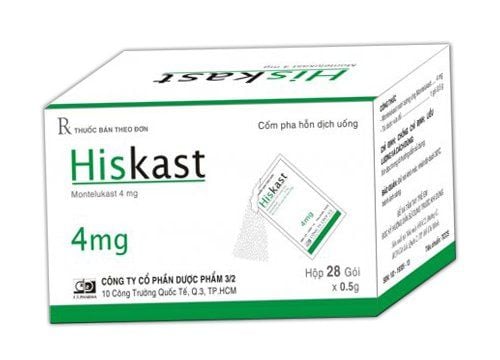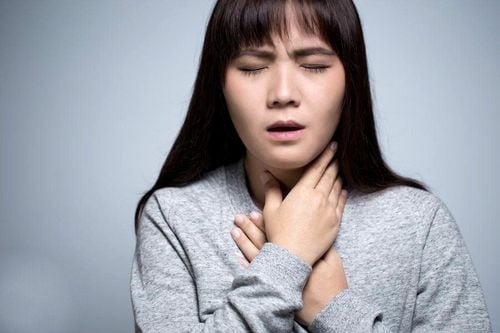This is an automatically translated article.
The article is expertly consulted by Master, Resident Doctor Dang Thi Ngoan - Pediatrician - Neonatologist - Department of Pediatrics - Neonatology - Vinmec Ha Long International Hospital.Human upper respiratory tract is counted from nose to larynx including nose, pharynx and larynx. When this part is invaded by pathogens, it will cause cold symptoms and if not treated properly and promptly, it can lead to inflammatory diseases of the upper respiratory tract.
Upper respiratory tract infection in children is a common name for a combination of diseases including: nasopharyngitis, colds, sinusitis, pharyngitis, laryngitis ... with typical symptoms such as:
Inflammation of the airways upper respiratory tract in infants: mild fever, cough, runny nose or not, wheezing, refusing to feed, fussiness... Upper respiratory tract infection in older children: runny nose, stuffy nose, fatigue, sore throat, hoarseness, low fever, runny nose, cough, loss of appetite... Signs of upper respiratory tract infection in children, if not treated promptly, can quickly progress to pneumonia and make treatment difficult. treat.
When children are diagnosed with upper respiratory tract infections, depending on the age and severity of the disease, different treatment regimens are available. Usually, the doctor will give the child drug treatment to help relieve the symptoms and local anti-inflammatory, parents should absolutely not buy medicine for the baby to use but must comply with the doctor's instructions.
In addition, in parallel with the treatment of upper respiratory tract infections in children, parents regularly wash their nose, keep the baby's body warm in cold weather, keep the baby clean, and avoid humid places. short. If the child has a fever at a temperature of 37.5 - 38.5 degrees Celsius, let the child lie in a cool room, wearing cool clothes. Give the child plenty of water to drink, cool the child, and at the same time give the child enough food, measure the child's body temperature to monitor whether the child has a fever. If the child has a fever above 38.5 degrees Celsius, give the child an oral antipyretic drug suitable for age and weight.
Upper respiratory tract infection in children is a very common disease, so parents should monitor their children's health, give them enough nutrition to increase resistance, as soon as children show signs of inflammation. upper respiratory tract, it is necessary to take the child to the hospital for examination and treatment in time, to prevent complications.
Please dial HOTLINE for more information or register for an appointment HERE. Download MyVinmec app to make appointments faster and to manage your bookings easily.














